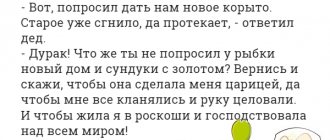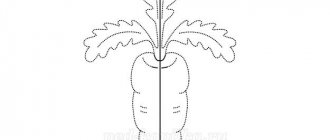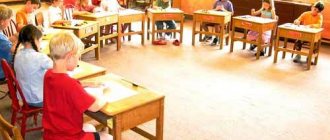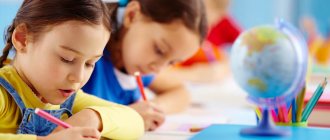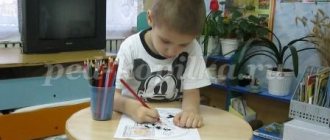Proper preschool preparation is the key to excellent results at school. It would be best if you start preparing from the age of 4, because the school requirements for first-graders are quite high. And if the child has already gone to school and his parents have not worked with him before, then it will not be easy for him. There is a list of specific skills that every first grader must master in order to be ready to learn the necessary material at the school desk. And there are methods that will help parents prepare their babies even at home.
What skills should a first grader have?
What are the requirements of the Ministry of Education for a modern schoolchild? Today, every first grader should be able to:
- introduce yourself and tell a little about yourself and your family members, your interests and hobbies;
- distinguish vowels from consonants, be able to read light text and write block letters;
- list the days of the week, months and seasons;
- tell about morning, lunch and evening;
- perform addition and subtraction of prime numbers;
- distinguish geometric shapes: circle, square, rectangle, star, and also draw them yourself;
- retell a simple text;
- find an extra item among those listed and explain why it is extra;
- dress, undress, wash and make the bed;
- respect and listen to elders, be cultured;
- distinguish colors and shades;
- describe the image;
- count to 20 and back;
- know body parts;
- distinguish between questions: when? Where? Why? And be able to answer them;
- distinguish between animate and inanimate objects;
- peacefully defend your opinion and not get into a fight;
- speak politely and clearly;
- attend lessons quietly and without whims, do not distract other children and listen to the teacher.
These are the most basic requirements and, as you can see, there are many of them. And in order to teach a child all of the above, you must follow some rules:
- increase the load gradually. Give new material only when the child has mastered the old one;
- classes should be short (15-20 minutes maximum), then take a break (15-20 minutes). Let the child rest and engage in physical activity;
- change types of activities so that the child does not feel overworked and bored;
- classes should include game elements. Invite your child to study, don't force him. Explain why a person should be educated. Do not hit or punish your child if he does not want to study today;
- If you use a textbook, let it have a lot of bright and memorable pictures. This way the child will learn the material better and faster.
Modern methods of preparing children for school.
Modern methods of preparing children for school.
Many parents, when sending their children to school, are upset that the child is not fully developing his abilities.
According to a number of modern teachers and psychologists, teaching methods in our schools are significantly outdated, require radical updating, and it is better to start teaching a child from an early age in order to maximize his potential. At the age of 3-4 years, they perceive information most effectively.
There are many preschool institutions in Russia that offer a variety of activities to prepare children for school. It is useful for parents to understand each of them in order to choose the most interesting and effective option for their child.
Zaitsev’s method, aimed at the development of children 3-5 years old, suggests quickly teaching a child to read using special cubes of different sizes and colors. An adult gives an interesting task, and the child completes it with the help of cubes. At the same time, the baby is significantly liberated, and he remembers information from hearing, and also develops visual memory.
The Nikitins' methodology, aimed at preschool development, offers a number of interesting logical tasks based on the interaction of a child with an adult. Together they must suggest ways to solve puzzles using cubes, cards and construction sets. The method develops the child’s imaginative thinking and logic well.
The Doman method also prepares the child for school. Children are offered all kinds of cards with images, letters and words that need to be memorized and spoken, as well as a large number of other exciting logic tasks. The method stimulates the activity of the nervous system well and effectively develops the perception of new information.
The Motessori method is a special systematic developmental activity for preschool children. They include a large number of different games using all kinds of geometric shapes, colors, textures that well develop the child’s tactile sensations, motor skills, memory and imaginative thinking.
The unique “mental arithmetic” method shows high results; its programs are designed for classes from 4 to 16 years old. Training occurs with the help of special oriental abacus called “soroban”, which teaches oral arithmetic. During training, children gradually get used to recreating “soroban” from memory. Using this method, they not only add or subtract complex numbers, but also multiply and divide them in their heads. Children who study in this program develop at a tremendous pace, significantly ahead of their peers.
The right and left hemispheres make up the human brain. The right hemisphere forms imaginative thinking, tactile sensations, and touch. The left hemisphere is the logic, analysis, and speech abilities of a person. When two hemispheres work effectively at the same time, then a person has every reason to become a real genius in any field of knowledge. Only 5% of people on Earth have both hemispheres of the brain developed at the same time. Mental arithmetic stimulates the work of the right and left hemispheres of the brain, which forms the child’s photographic memory and special thinking.
“Mental arithmetic” stimulates the child’s ability to perceive large amounts of information and teaches him to make calculations of complex examples orally. The program is conducted by qualified teachers in a playful, interactive form that will interest children of all ages and teach them “mental arithmetic” in a fun and interesting way. A child who has been trained using this method has a high chance of successful self-implementation in any field of knowledge. MENTAL ARITHM
The course “Mental Arithmetic” is intended for preschoolers and schoolchildren. Age range - from 5 years to 16 years. Mental arithmetic is a technique that actively promotes the intellectual development of children, increasing mental abilities and creativity through oral arithmetic calculations and the development of bihemispheric thinking.
Mental arithmetic courses develop:
- Imagination.
- Creative skills.
- Speed of reaction.
- A non-standard approach to any situation.
- Creativity.
- Leadership skills.
- Perseverance and attentiveness.
- Memory.
- Interest in studying other disciplines.
- Quick math in your head.
The skills developed by mental arithmetic courses are an excellent foundation for the further development of your child! Learning any other information becomes much easier!
Why do we need mental math for children?
- Reaction speed and memory performance improves.
- The brain is trained.
- New information is quickly perceived.
- The child’s level of safety in life increases.
- Achievement in basic school subjects improves.
- 100% guaranteed results.
Mental arithmetic is a technique that has been used in our country not so long ago, but is already widely in demand. Many people want to know - where and how did it appear? The emergence of mental mathematics is usually associated with the invention of the abacus abacus by the ancient Chinese - this happened more than five thousand years ago. Then the Japanese improved these abacus. Today they are called "abacus".
Mental arithmetic for children is a system that has no analogues. The program is divided into several fragments and structured in such a way that the result is maximum:
- The first lesson begins with children becoming familiar with both physical and mental abacus. In all classes, two types of calculations are studied at once;
- just four weeks of regular mental arithmetic classes is enough for a child to solve examples in his head much faster than any adult;
- after two months of classes, children solve examples in their heads while reciting the poem out loud;
- in a year the child will master all the rules of addition and subtraction when counting in his head;
- When the child completes the course (it will take 2-2.5 years), he will easily use all the rules of multiplication and division for mental calculation.
If your child is 5 years old, can count from 0 to 10 forwards and backwards, and can also relate numbers to quantities, then he can already be enrolled in a trial lesson in mental arithmetic. The very first exercise will be a step into a world of amazing opportunities for your child!
Memorica is a fascinating memory development course designed for preschoolers and schoolchildren from 6 to 16 years old.
The main goal of Memorika is the active development of children's memory. Thanks to modern technologies, it accelerates the development of memory, imagination and thinking in children.
A good memory is one of the important components of our success. In any business, communication skills, creativity, attentiveness and a good memory are valued. The Memorica course is an excellent school for the development of intelligence, promoting the growth of cognitive qualities of thinking. Parents should pay attention - this is especially useful for preschool children.
Knowing how memory works, you can learn to quickly memorize a large amount of information without effort. At Memorika children's memory development courses, children learn unique memorization methods. Techniques for developing intelligence are a very simple thing: by doing simple memory training exercises every day, children will be able to remember information perfectly.
Memorics are verified methods for developing intelligence.
At the first lesson, the starting indicators of the students are determined. To determine them, a special testing system has been developed in the Memorica course. These metrics are then used to track student progress. For training, an exclusive methodology and patented textbooks are used, in which children complete tasks.
What is the school of memory and intelligence development based on?
The development of memory involves thinking, imagination, attention, and creative activity. Without all this, the activity of the mind is unthinkable.
Excellent memory rests on three things - imaginative thinking, systems thinking and memory process management. Imaginative thinking makes the world brighter, and us - creative people. Systems thinking allows you to see a holistic picture of what is happening and understand the true causes of events in the world around you.
Thanks to the imaginative and systematic thinking that is developed during the Memorics course, children master various mnemonics, which are a set of various techniques and methods for developing intelligence that make it much easier to remember large amounts of information. The developed systems for the development of intelligence transform the mind in a short period of time.
Memorika is an author's program.
At the school for the development of memory and intelligence, children complete tasks with pleasure and ease and get excellent results! The classes don't take much effort, and learning ways to improve your memory is easy and fun!
What exactly will a child remember when attending memory development courses for children?
- After the 2nd lesson: cell phone number and what homework was assigned at school the next day.
- After the 4th lesson: 8 lines of the poem the first time.
- After the 6th lesson: learn the oral lesson 1 time.
- After the 8th lesson: remember 10 characters - appearance and information about them, and also remember the compositions of 10 art paintings in detail.
- After lesson 10: mathematical and spelling rules.
- After the 12th lesson: remember the daily volume of school lessons the first time or make a detailed oral presentation. Fully apply all acquired knowledge on Memorica.
The results of Memorika are a decrease in the difficulties of learning and an increase in interest in it. Memorica allows you to easily and playfully explore the world around you. The textbooks and platform provide a reliable standard of learning quality!
It is very important for a person to acquire new knowledge. This is why we study foreign languages or master musical instruments. Any skill develops as a result of receiving information. How quickly a person reads determines how quickly he learns new things.
Speed reading can greatly improve your life. To master it, you need perseverance and a desire to develop a love of reading. This skill will be extremely useful for those seeking to learn new things. Having mastered it in practice, you can save a lot of time.
The goal of the Liberica course is to develop reading speed and achieve the highest possible understanding of the text read. The goal of the speed reading school is to gradually enlarge the perception of the text. After the development of speed reading, the text for the child will become a three-dimensional picture into which you can immerse yourself and live it. The result of using this technique is the discovery or development of a love of reading.
Quick reading allows you to:
- Increase your reading speed, first of all, “to yourself.”
- Increase your reading comprehension level by using your memory to its full potential.
- Develop imaginative thinking and interest in reading in general.
Every day, schoolchildren are faced with large volumes of literature that must not only be read quickly, but also memorized. Liberica is an innovative technique for improving reading speed, allowing you to read quickly and efficiently. Speed reading for children is a way to learn maximum concentration on a text. If a child is distracted or does not like reading, then Liberica will be the solution to the problem.
These skills last a lifetime. Having speed reading skills and developed memory, a child becomes more confident in himself and his self-esteem increases. Fast reading develops the skill of effectively implementing new knowledge.
Learning to read quickly will help your child:
- Read “to yourself” 5 times faster and understand up to 100% of the information read.
- Be more attentive and focused when studying information.
- Confidently master not only the school curriculum, but also additional disciplines.
- Consider the reading process from an interactive point of view.
- Read quickly and easily, regardless of the situation and learning difficulties.
- Arouse genuine interest in reading various literature.
Speed reading school for children provides the following benefits:
- Children are taught speed reading exclusively using patented textbooks and proprietary materials designed to speed up reading.
- All stages of studying Liberica are interconnected, taking into account the gradual complication of the material.
- Classes are held in a playful way; the course pays a lot of attention to the theoretical aspects of speed reading and changing the perception of reading books and various information.
- Each lesson, children test their results and can write them down.
- Children can express themselves by doing exercises at home. The child’s achievements are stored on an online platform and are also included in special educational materials.
Liberica is a unique course that was developed taking into account the wishes of parents and specialists involved in the training and development of preschool children.
Liberica's speed reading courses are suitable for junior and senior high school students. To begin learning, a child needs to read word by word at a minimum of 40 words per minute.
The Rubik's cube is a colorful and popular toy that children often take with them on trips to pass the time. However, in addition to its entertainment function, it is an ideal mental simulator that gives positivity and promotes development:
- systems thinking;
- fine motor skills of both hands;
- spatial imagination;
- logical thinking.
Special courses on Speedcubing involve high-speed assembly of a bright toy in the shortest possible period of time. In addition to the classic assembly of the structure, the child will also learn to assemble various patterns.
Speedcubing courses: what are these classes?
Solving a Rubik's Cube in the company of other children under the strict guidance of real professionals is an effective learning experience that is intended for students aged 7 years and older.
The courses presented help:
- develop the mental activity of children, which subsequently has a positive effect on the development of the left and right hemispheres;
- speedcubing for children is an excellent way to effectively train memory and children's logic;
- training of three-dimensional spatial thinking.
Speedcubing is designed for children aged 7 to 16 years. In some cases, individual situations may be considered when children aged 6 years and older are enrolled in lessons.
The learning process is incredibly interesting, thanks to the game form of the classes. It is important that the child is able to perceive these courses not as a boring lesson at school, but as an exciting game process, as a result of which one can discover many interesting facts.
Rubik's Cube courses for little intellectuals
To keep their children occupied during the summer holidays, many parents choose Rubik's Cube courses.
As they climb the steps, children gradually move from one stage to the next. As a result, the program is designed in such a way as not to overload children with large amounts of new information.
Today, there are a huge number of different methods that are used to teach a child reading skills.
All classes are held in a playful way, which is especially important for little fidgets. After all, preschoolers associate any lesson with a long and boring study of new information that must be memorized. Much depends on the way this information is presented, as well as on the atmosphere in the classroom. This is what influences further progress in learning.
Reading School: Using an Online Platform
Organized reading courses imply the use of not only a certain set of textbooks, but also the use of an online platform as the main gaming component. Modern children are very familiar with computers, and parents are only in favor of automating the learning process and abandoning the old form of presenting new information.
Children quickly adapt to innovative solutions, which has a positive effect on their overall development, guaranteeing a bright and progressive future. Initial learning to read involves completing unique tasks presented on the appropriate online platform. Moreover, the results of such classes will be noticeable in the shortest possible time not only to the teacher, but also to parents.
Learning to read contributes to the active development of such important mental functions as:
- logical thinking;
- memory (the baby can remember much more information that is fascinating to him);
- speech (development of the speech apparatus);
- imagination and children's fantasy;
- perception.
The main task of highly qualified teachers is not only to teach the child to read various texts, but also to teach him to understand what he read. A child can pronounce sounds correctly and read every word, but what good is this if he does not understand the meaning of words, phrases and sentences?
Don’t rush and try to teach your child to read as quickly as possible. It is important to focus on understanding and awareness of what he has read. Thus, teachers are focused on quality, not speed.
How do children learn to read?
To teach children literary reading, you will need to competently plan the entire course and organize the correct presentation of educational material.
How to prepare a child for school from 5 to 7 years old?
Today it is important not only to teach your child letters and numbers, but also to begin all-round development. The baby should be comfortable in the company of the same age. In addition, you need to approach this matter extremely carefully so that the child does not lose the desire to study further. Many parents begin to prepare their son or daughter for school quite persistently, and then do not understand why the child shows no interest in studying at all.
In kindergartens it is much easier to prepare children for school, because they are already in a children's group, building a daily routine and getting used to classes. Remember that a prepared child will not only do well in the program, but will also become the life of the party. And if the child does not have some skills, then among his peers he may be considered an “outsider.” If you decide to prepare your child for school on your own, read the recommendations below:
When to start preparing
Going to school is always exciting for both adults and children. Some parents begin preparation in advance so that by the first grade the child has already mastered the skills of reading, writing and counting. There is another category of adults who believe that teaching everything is the task of teachers. Such parents spend almost no time preparing their children for school. Which one is right? There is no correct answer, as well as a clear solution. Each family chooses for itself, based on its capabilities and the abilities of the child.
What happens if a child is not prepared for school? Nothing terrible. In first grade, children will be taught to read, write, and count. But in this case, parents should be prepared that the child may lag behind classmates who have already mastered these skills. A first grader who is learning about letters and counting will have more difficulty with assignments, and homework will take longer. This situation is not conducive to success and can result in such a strong decrease in interest and motivation to learn that the child no longer wants to go to school. Therefore, most parents try to prepare their children for first grade in advance.
Reading training
Pay attention first of all to reading lessons. After all, if your baby masters the basics of reading, it will be easier for him to learn other subjects. Start by learning the letters (preferably in alphabetical order). Remember the elements of the game and try to sculpt each letter from plasticine or clay. Ask your child what this letter looks like.
Read a simple text together and ask your child to find the letters you studied today. Afterwards, you can invite the child to retell the selected text or at least answer the questions.
Math teaching
When the baby is still 2-3 years old, you can gradually begin to teach counting. Count together steps on a walk, toys at home, candies and fruits. Afterwards, you can show your child the counting sticks and start counting them.
It is very effective to learn numbers in pairs (2 and 3, 4 and 5). This will make it easier for your child to understand adding numbers. When you start explaining to him the rule for adding one, it will not be difficult for him to tell you the correct answer. Take one digital pair per lesson, but before taking new material, review what you have covered.
Geometric shapes can be easily and interestingly studied using cookies of different shapes. Start with simple shapes: circle, triangle, square. The store today has cookies to suit different tastes and budgets.
Once you are familiar with simple shapes, you can learn to draw them.
Remember that you will achieve greater results if you alternate activities between each other.
Teaching writing
Children's hands are not at all ready to write. Here parents will have to try hard to train their son or daughter.
During preparation, exercises and games to develop fine motor skills will play an important role. Already at two years old, you can give your baby different pasta, cereals, some beads and play with him (of course, make sure that the baby doesn’t put anything in his mouth). You can also try tying your shoelaces together and massaging your arms.
Buy children's scissors with rounded ends at the store and show your baby how to use them. Let him try to work with them himself.
When learning to write, start by writing block letters. They are easier to learn, and only then move on to capital letters. Make sure your child practices regularly and teach him not to go beyond the lines on a sheet or notebook. And for this important task, you can buy a good and comfortable pen for the child so that he does not experience discomfort when writing.
There are excellent finger exercises that help kids stretch their hands during breaks between training: “The fish in the lake were splashing in the quiet, warm water. They will either shrink, unclench, or bury themselves in the sand.” At the same time, let the child actively move his fingers and the entire arm.
Buy a notebook from the store that will meet all school requirements. There are a lot of them on the shelves today. Let your baby gradually get used to the attributes of school.
USEFUL RECOMMENDATIONS
Here are a few ideas that will help parents develop their own program for preparing their child for first grade.
- You shouldn’t scare your child or tell him that school will be difficult. It is better to help him get rid of psychological discomfort in a playful way.
- Before lessons, it is important to help your child learn to maintain attention. You can start with the simplest thing - telling him what is really interesting to him, carefully observing whether the baby remains interested. Next, move on to information that is less attractive to the child, but more useful from a learning point of view. The approximate duration of attention is 15-20 minutes, this is the number you should strive for.
- If for some reason a child does not go to kindergarten, at the age of 5 you need to actively introduce him to other children. Otherwise, he will go to school not ready to communicate.
- It is better to teach your child to get up on time in advance, so a month or two before the first bell you need to gradually wake up earlier and earlier.
- In order not to spoil your baby’s eyesight and posture, you need to practice sitting at the table with him and set an example yourself. You can come up with a fun game - whoever sits correctly gets a point, whoever is hunched over loses a point. At the end of the week a count is carried out. Depending on how many points the child scores, the parent prepares and gives him a small gift.
Of course, in the end, each parent develops his own method of preparing a child, taking into account his individual characteristics. However, general advice still needs to be taken into account. And it is important to remember that only patience and attention will help a child overcome the difficulties that arise and enter a new stage of life.
Creativity training
Purchase in advance a starter kit for creative activities: an album, brushes, paints, pencils and felt-tip pens. To begin with, let your child practice coloring coloring pages. Buy several close-up coloring books with different themes (preferably one that your son or daughter likes). Explain that the baby should not go beyond the lines, let him learn to be careful now.
It will be great if you study some geometric figure the day before and then color it together. Or, on the contrary, draw a watermelon or an orange, and then ask your child what shape it has.
Do different activities: draw, paint, sculpt, cut out. This way the child will learn the material covered even better.
Psychological readiness for schooling.
Every child reacts differently to school and the need to attend school every day. However, scientists say that adaptation to school is better when the child has the necessary school skills:
- the baby has an interest in knowledge;
- the child learned to analyze and compare objects and concepts;
- know that at school the child also learns communication skills and awareness of goals.
- the child is concentrated and interested in what he is learning;
- problem solving, overcoming difficulties.
Remember that you can prepare your child for school without turning to a child psychologist for help. Many of the exercises are quite simple so that you can do them at home. But you will have to follow some tips:
- communicate with your baby. Do this while you write, decide, read. Discuss the material covered regularly.
- read more fairy tales and stories and ask some questions later. Let your child learn to analyze what he read, retell the plot to you, or at least name the main characters. Ideally, the child should express his personal opinion about what he read.
- Together with you, your child will begin to understand what school is and how important it is to study. Don’t forget to praise your baby and encourage him, even if he doesn’t succeed in everything right away. After some time, try to switch roles and now let your son or daughter be the teacher, and you the student.
- Never finish your child’s work, teach him to be independent. The maximum you can do is help him (collect toys, get dressed, wash his face)
- Allow the child to independently perform those actions that he strives for and knows how to do. Children are very inquisitive and at a certain age they want to do many things themselves. If you control him all the time and don’t give him freedom, then the child will never learn to eat on his own, tie his shoes, or make his bed. And this, in turn, can cause ridicule in kindergarten and school. And vice versa: the more your child demonstrates independence at home, the more skillful and independent he will be in kindergarten and elementary school.
- Teach your son or daughter to communicate with peers. It is especially difficult for children who do not have brothers and sisters. They have difficulty understanding what it means to share, play together, and not fight. Invite guests to your home or arrange games right in the yard.
- try not to laugh at your child when he doesn’t succeed and refrain from making comments. Children at this age are very vulnerable. From the ridicule of loved ones, a child may develop low self-esteem and an inferiority complex.
- Don’t force your child to study, but motivate him. Tell us how many new and interesting things he can learn in class. This way the material will be absorbed easier, and the baby will study with pleasure.
- teach your child discipline gradually. Explain to him that when the teacher speaks, you need to listen to him and there should be silence in the lesson.
- Explain to your child that he should ask questions to the teacher if he doesn’t understand something from the new material. There is no shame in asking, it is a shame not to know and not to strive to find out.
- Help your child develop self-esteem. Some kids are too aggressive, and some are too calm. Both one and the other can harm the baby in the children's group. Tell your child that different situations may arise at school. You can even play out scenarios of different conflicts and see how ready your child is to solve problems on his own. Help your child do the right thing in a controversial situation. Listen to what he would do in the current situation, and then express your point of view. In any case, you will have to help your son or daughter do the right thing.
SAMPLE LIST OF KNOWLEDGE
To check how ready your baby is for the new stage of his life, you can check the following list of skills. Let us immediately note that the information is approximate, a child may know one thing, but not understand anything else - this is normal, because everyone’s abilities are different. But parents should take on board an approximate list of knowledge and skills.
By the age of 6, a child should know well:
- your full name, address (starting from country), date of birth and age;
- FULL NAME. parents, as well as where they work (there is no need to require the child to memorize the exact name of the company - the profession and the abbreviated name will be enough);
- names of animals and their offspring;
- vegetables, fruits, berries – be able to show them in pictures and in reality;
- give examples of wintering and migratory birds, garden and wild flowers, wild and domestic animals, explain how they differ;
- months of the year (what they are called, in what order they are located on the calendar, what month it is);
- primary colors and shades;
- alphabet - know the sequence of letters in the Russian language, what it looks like, what words it contains.
Some children also know the English alphabet, but this is not necessary.
A child should know all this before entering the doors of an educational institution for the first time.
Child health and school
Separately, it is worth discussing the issue of the health of a child who is preparing to go to school. While parents are busy educating their child at home, they often forget about his health.
6-7 years is a period of active changes in the body of every child. Usually at this time, baby teeth change and growth of the whole organism occurs. At this age, children need more physical activity. If a child must sit at a desk, then it is better to send him to school at the age of 7 (from a health point of view, this will be better for the baby). If you do send your child to school at age 6, carefully study what physical training the school offers. It is very good if the school has a swimming pool and an equipped gym, because a growing body requires physical activity several times a week for the heart, blood vessels and joints to function properly. In addition, we remember about changes between lessons. During this time, the student should rest outside the classroom, and the room should be ventilated.
The parent, in turn, can provide the child with regular rest before school. Every child needs a break from:
- communicating with a large number of people;
- catering;
- large amounts of exhaust gases and household chemicals.
According to doctors, the best vacation for a child is in the village with his grandmother. Only there today the maximum amount of fresh air, most of the products from your garden and vegetable garden are preserved, and the child will spend a lot of time in nature. This way he will develop immunity to new viral diseases and infections, the child will spend his days actively and take a break from the bustle of the city.
Develop your child at home and help him explore the world around him. Remember that every child is individual, but all children must master certain skills by the age of 6-7 in order to cope with tasks at school, learn new things every day and communicate with peers.
WHERE TO START PREPARING?
The role of parents at this stage is undeniable. Even if a child goes to kindergarten and there, together with a group, receives the necessary knowledge, without reinforcement at home, it will be of little use. In addition, you can enroll your preschooler in special groups and sections - a collective form of work will help him learn to communicate and work together.
But it is also important to conduct individual training at home. Calendar planning will help you achieve success. Parents of a child who is 4 years old can start a notebook in which they roughly distribute what they need to teach the child. This activity can be coordinated with kindergarten teachers so that the child reinforces the material without becoming overtired.
And every day you need to play educational games with your child for 10-15 minutes, tell him about objects in the world around him while walking, introduce him to colors, sizes, distances, and teach him to count.
There are many early development methods, elements of which can be used by modern families.
- Doman's cards will help to introduce your child to animals, plants, and meteorological phenomena in an easy and unobtrusive manner.
- Montessori frames will clearly explain the essence of shape and size.
- Various constructors and mosaics will help improve logic, abstract and spatial thinking.
- Cubes for children will help them learn to read (if letters or syllables are written on them), work with colors (this requires a multi-colored set), and understand what “close” and “far” are. Preparation tasks can be very diverse.
The most important stage of preparing for school is instilling in a child the skills of independence. He must be able to dress himself, tie his shoelaces, and fasten his zippers. There will be physical education lessons at school, so the child needs to be taught in time to quickly and correctly put on sportswear and shoes. To do this, you can play a rescuer - invite the child to put on a suit as quickly as possible, since the salvation of, for example, an entire planet will depend on his speed.
It is equally important to instill in a preschool child the norms of etiquette - teach him to say hello, say goodbye, and talk politely with elders.

